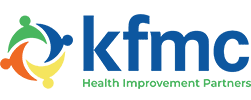Community Resources
Addressing health equity cannot be done in a silo. It is imperative that your organization understands, and is a part of, your community’s culture and ensures that your community is involved in all planning and implementation of health equity. This page provides resources to help you develop community resources, recognizing that each community is unique.
Collaborating with Community Partners
Community Factors and How They Influence Health Equity, Health Equity and Prevention Primer, Module 3 — Prevention Institute
- Strategic Partnership Development: Achieving Collaborative Advantage in Public Health Toolkit (PDF) — Kansas Health Institute
- Community Engagement Assessment Tool — Minnesota Department of Health
- Creating and Maintaining Coalitions and Partnerships — The Community Toolbox, Center for Community Health and Development, University of Kansas
- Transformational Community Engagement to Advance Health Equity — Robert Wood Johnson Foundation
Considered most valuable resource
Community Health Worker Resources
Reimbursement Strategies for Employers of Community Health Workers — A Toolkit — Mid-America Regional Council (MARC) and the Health Forward Foundation
-
Expanding Access to Community Health Workers in Rural Communities – This webinar highlights strategies and real-world lessons on strengthening rural health systems by expanding access to community health workers.
Considered most valuable resource
Rural Health Equity
Health Equity Toolkit for Rural and Remote Communities — Omni Institute
- Advancing Rural Health Equity (PDF) — Centers for Medicare and Medicaid Services Rural Health Council
- Advancing Health Equity in Rural America — Robert Wood Johnson Foundation
Considered most valuable resource
Urban Health Equity
Urban Health Equity Assessment and Response Tool (HEART) (PDF) — World Health Organization
Considered most valuable resource
Visit our Partners
Definitions
Health disparity
inequities in the quality of health, health care, and health outcomes experienced by groups based on social, racial, ethnic, economic, and environmental characteristics
Health equity
the state in which everyone has a fair and just opportunity to attain their highest level of health
Health-related social needs (HRSN)
an individual’s unmet, adverse social conditions (e.g., housing instability, homelessness, nutrition insecurity) that contribute to poor health and are a result of underlying social drivers of health (SDOH)
Social drivers of health (SDOH)
also known as “social determinants of health,” the conditions in which people are born, grow, work, live, and age that are shaped by the distribution of money, power, and resources and impacted by factors such as institutional bias, discrimination, racism, and more
Resources are being provided as a convenience and for informational purposes only; they do not constitute an endorsement or an approval by KFMC or its partners.






